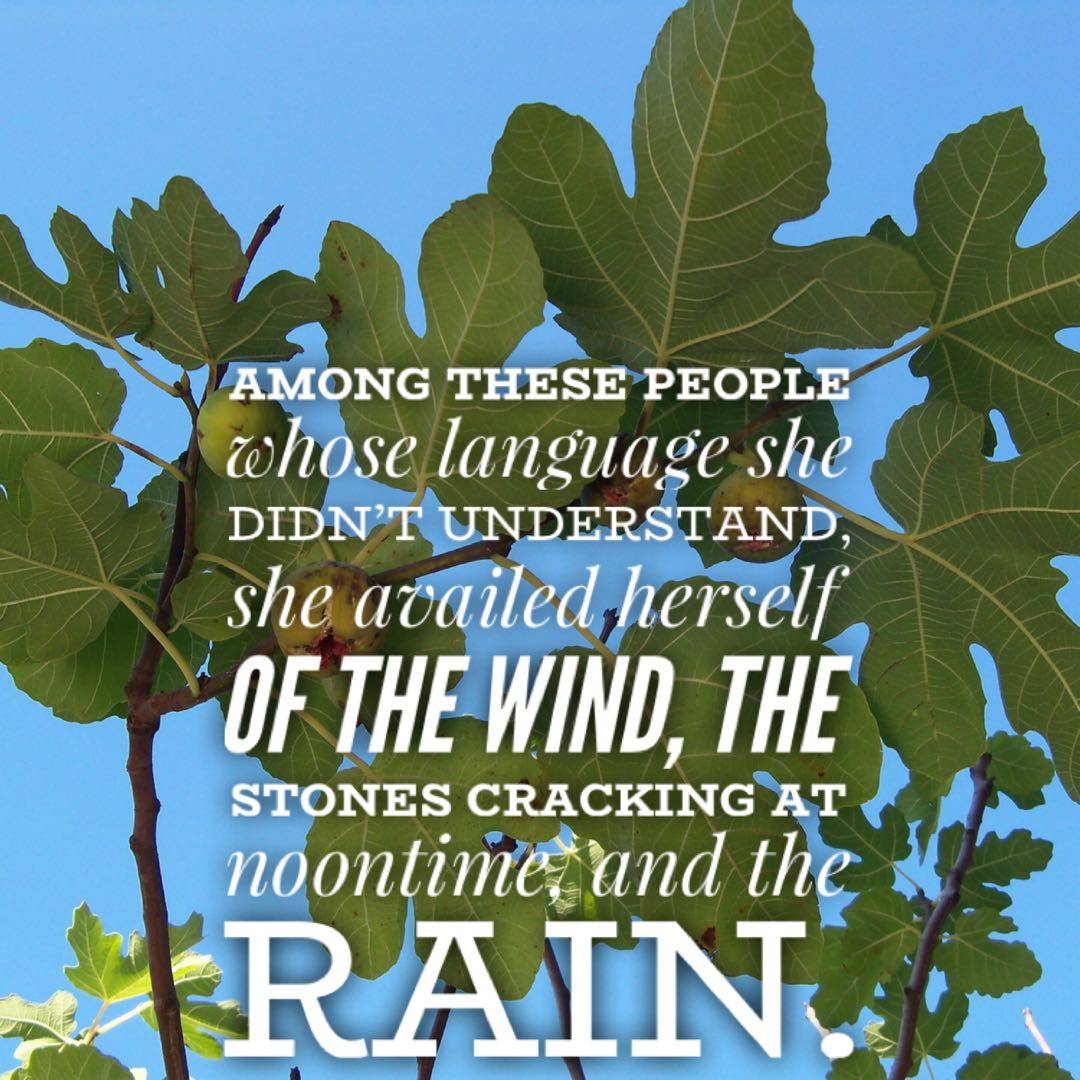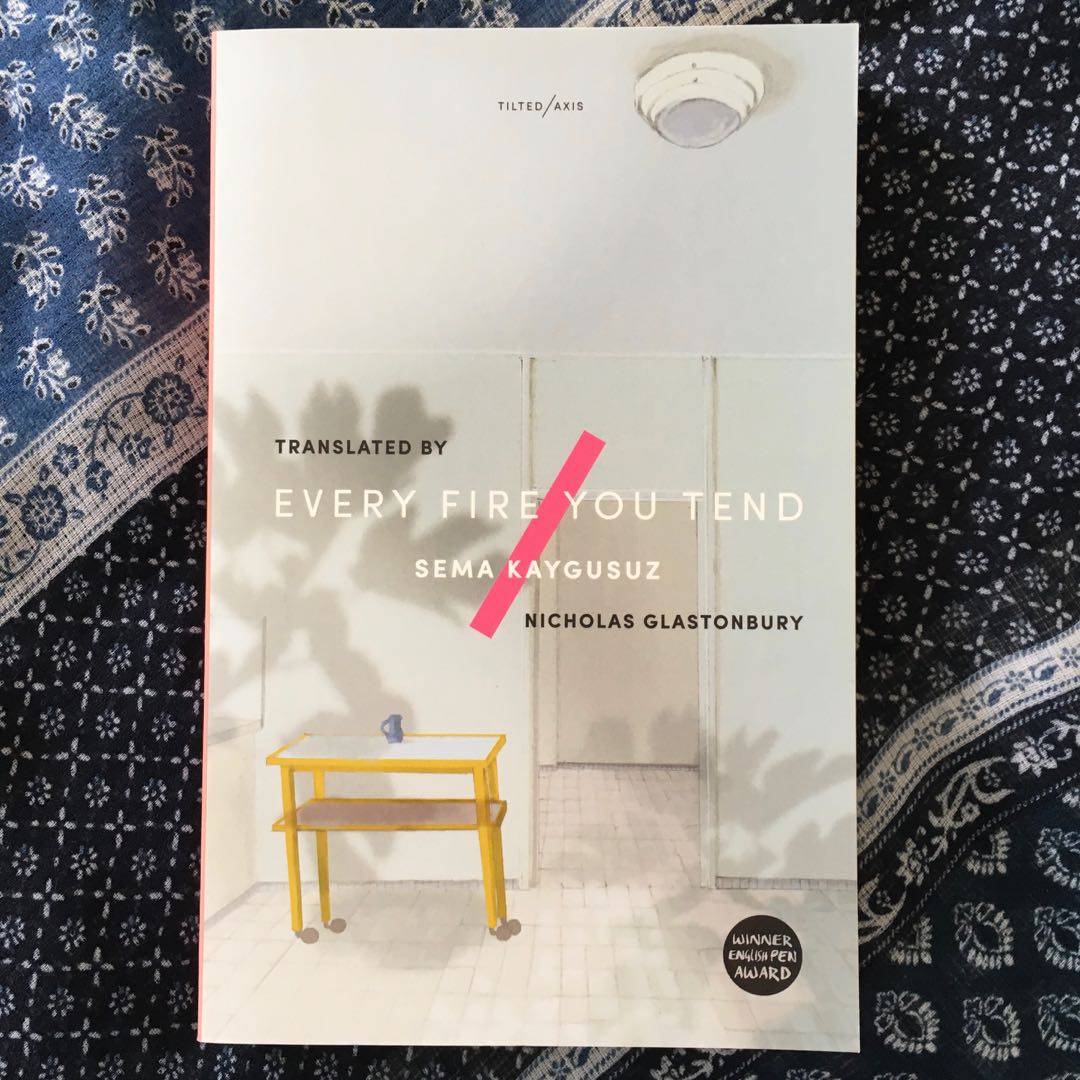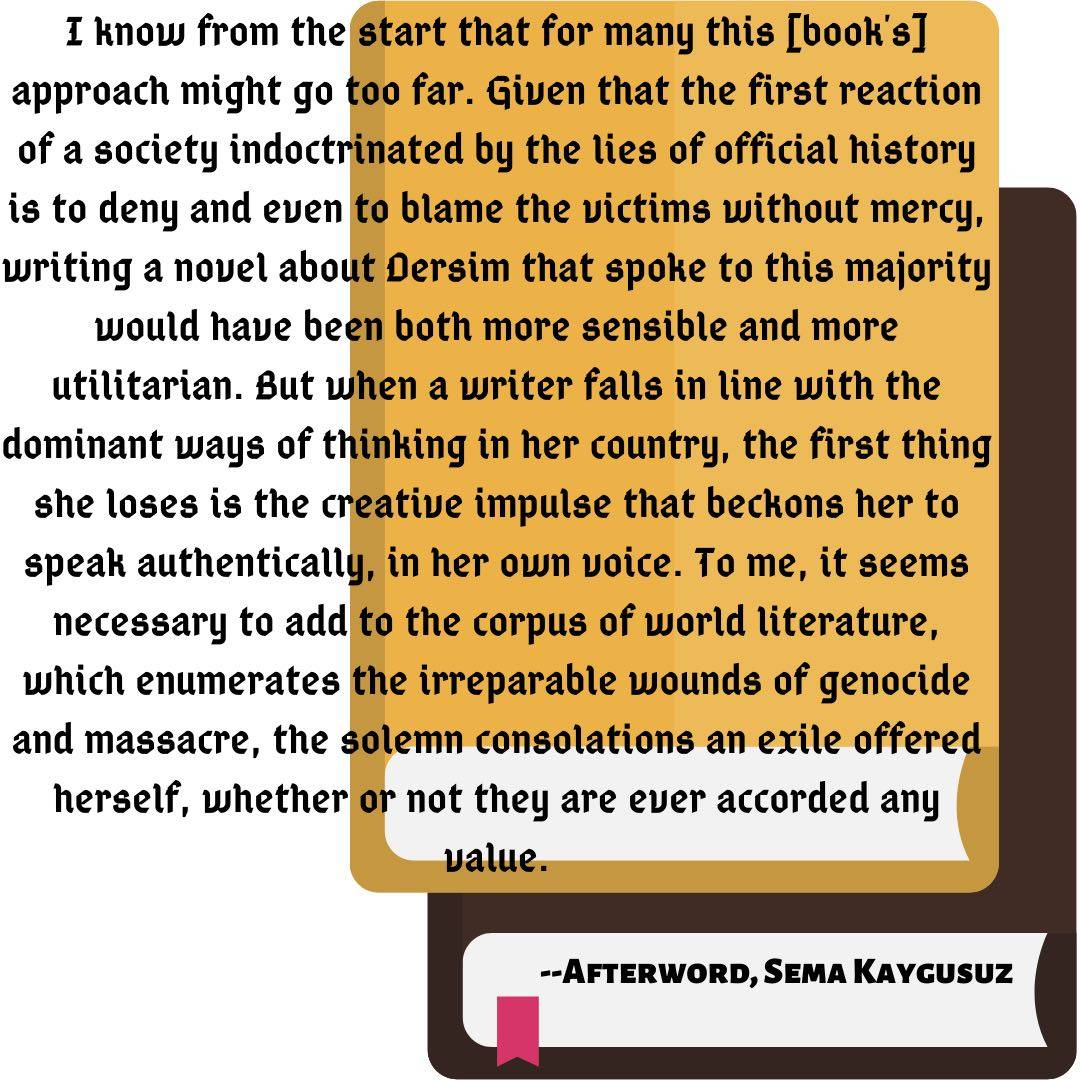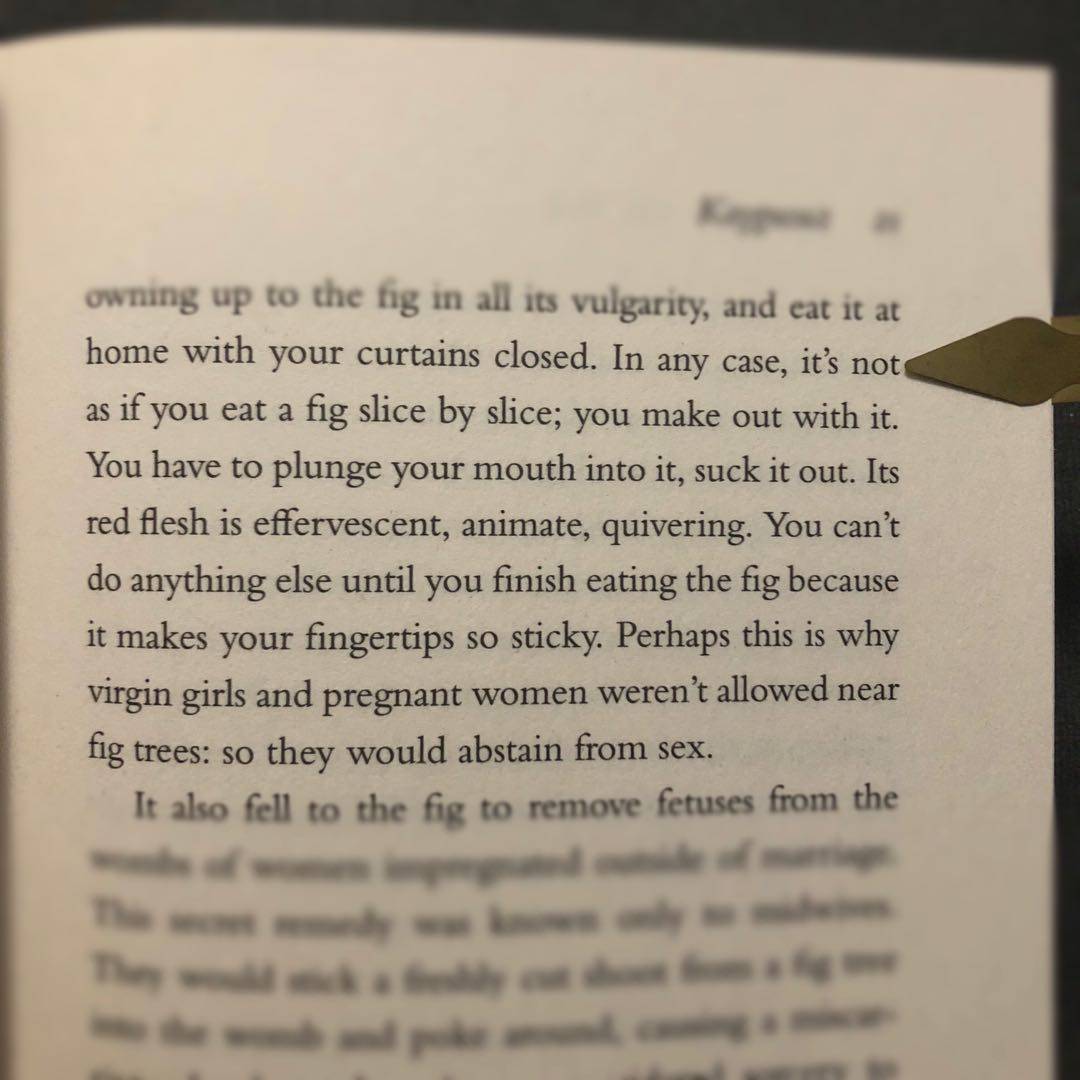
Not too sure what this is yet, but it‘s very beautiful. I may never look the same way again at a fig tree.

Not too sure what this is yet, but it‘s very beautiful. I may never look the same way again at a fig tree.

Heartbreakingly beautiful. At first I struggled to connect with the protagonist, who is absent (it‘s narrated in second person). The Turkish & Islamic stories woven through were new to me. But I surrendered to the prose & the sense of urgency in needing to know the stories. The protagonist has absorbed a sense of shame that stops her participating in life, & must come to terms with her family‘s history. The loss of language is an important theme.

I‘m struggling with this one. Hard to engage because of its distant (we don‘t see or hear from the protagonist), mythical style. On the other hand, lyrical writing, rich in ideas & I like the tone. One of those books where I love the project & the author more than the actual experience of reading it. 😬

What a beautifully written book. This is why I read literature in translation. Where else would I learn about the genocidal erasure of Dersim and it‘s people? It‘s amazing that pain, trauma, and memory can be described so poetically. I‘ve found another writer whose books I need to seek out.

“Figs are sensual. People are sensuous” — misquoted from the movie Animal House. 🤪😻